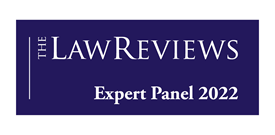In brief
In this edition, you will find an incisive overview of the legal and regulatory frameworks established to combat white-collar crime in major jurisdictions. With a focus on the practical implications of recent enforcement trends and policies, our lawyers examine key issues such as domestic and foreign bribery, associated offenses including money laundering, and best practices for internal compliance programs.
The edition showcases information on relevant economies around the world. Baker McKenzie shares its insights with regard to the following countries in Latin America
Argentina
This chapter serves as a guide to Argentinian regulations on domestic and foreign corruption. In addition, we address the legal framework of associated offenses, such as financial record-keeping and money laundering, legislative developments, and recent cases and investigations. Finally, we have included a summary of the current trends in local anti-corruption matters, as well as our conclusions.
Brazil
This chapter is intended as a guide to Brazilian regulations and how the global trend toward fighting corruption has made Brazilian companies turn their attention to the need to ensure conformity and integrity while developing their activities.
Chile
This chapter is intended as a guide to the regulations and strong measures that Chile has implemented in the fight against corruption. It also features recent cases and investigations.
Colombia
This chapter is intended as a guide to Colombian regulations on domestic and foreign corruption from the criminal and administrative (civil) perspective. The chapter includes a review of the status of the regulation in Colombia regarding forbidden conduct, prosecution, potential liability and penalties, compliance program, record keeping, defense alternatives, legislative developments, recent precedents. The chapter briefly describes other Colombia compliance systems linked to ABAC (Anti-Bribery and Anti-Corruption) programs, including AML/CTF (Anti-Money Laundering and Counter-Terrorism Financing) Data Privacy.
Mexico
This chapter provides an overview of Mexico’s domestic anti-corruption framework, including criminal, civil and administrative regulations. It discusses the elements of anti-bribery provisions in various contexts and examines related criminal offenses. It closes with a section dedicated to a forecast of legislative developments and other final thoughts.
Peru
This chapter provides an overview of the Peruvian legislation on anti-corruption, highlighting the main milestones in the fight against corruption that occurred during the last years. It develops how a prevention model (or compliance program) can not only help prevent a crime but also could serve as a defense in the context of an investigation (if adequately implemented). It also contains sections dedicated to the enforcement actions and closes with an outlook of legislative developments and final conclusions
Venezuela
This chapter provides an overview of Venezuela’s domestic anti-corruption framework, compliance programs enforcement, and outlook for entities wishing to enter, exit or continue operating in the Venezuelan market as a high-risk jurisdiction.
Reproduced with permission from Law Business Research Ltd
This article was first published in November 2021.
For further information, please contact Nick.Barette@thelawreviews.co.uk.

Trench Rossi Watanabe and Baker McKenzie have executed a strategic cooperation agreement for consulting on foreign law.








